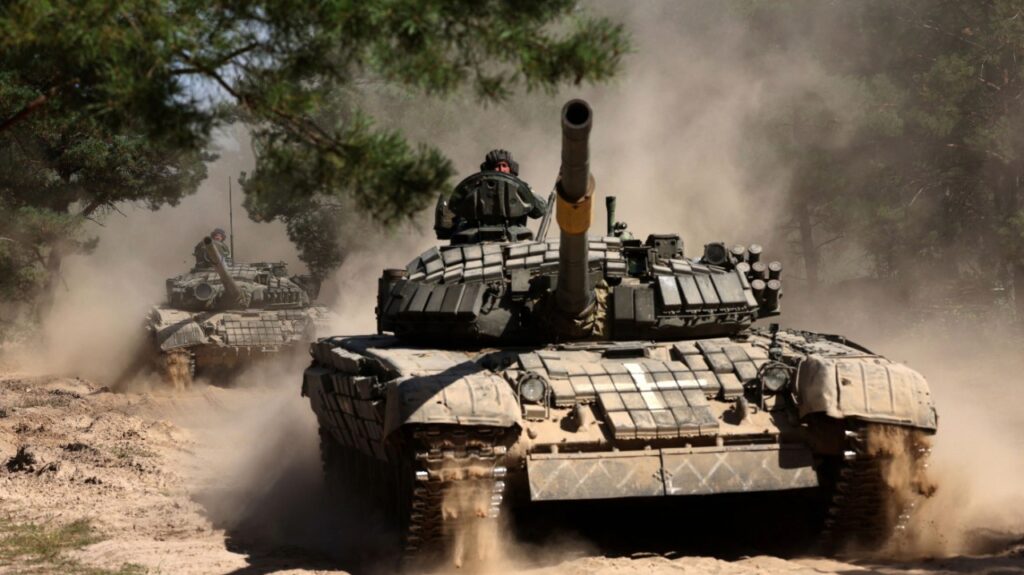Garry Kasparov, the renowned Russian dissident, recently observed that the Biden administration may be covertly negotiating with Russia to reach “land for peace” deals and many would-be experts are constantly urging this outcome. Many if not most of the proponents of this argument claim to be adherents of realism, a doctrine of international relations theory so they are not in this for the money.
Nevertheless, the more one scrutinizes the arguments that constantly repeat themselves in their work, the more unrealistic they turn out to be.
First, a universal precept of their arguments invariably turns out to be the assertion that Ukraine cannot win. Therefore, to avert further carnage or, worse, escalation to the nuclear level, it, or more suspiciously, Washington, ought to negotiate with Moscow. Even if Ukraine were prepared to negotiate, which it is not, this argument fundamentally misreads the current situation and the nature of this war. President Erdogan of Turkey recently left his meeting with Putin proclaiming that, “there is no promising prospect of peace on the horizon.” In other words, Putin will not negotiate.
One key reason Putin will not negotiate is that this is not a mere conventional war for territory. Rather it is a premeditated war (with increasing evidence of genocide) against Ukraine to eradicate both the idea and reality of an independent Ukraine, as Putin argued in his 2021 screed. Russian policies towards that goal, including mass murders, deportations, particularly of children, and its cultural policies in Ukraine have already led the International Criminal Court to indict Putin and others for those crimes, which fit the classic and United Nations legal definition of genocide. This is not merely my opinion; a bipartisan group of senators introduced a bill in 2022 to call Russia’s war crimes genocide. On this basis, what is there to negotiate about for Ukraine?
Likewise, the argument that Ukraine cannot win has already been disproven as Ukrainian forces are now advancing and recently broke through the first line of Russian defenses. They have also brought the war to Russia with drone strikes on Russian territory (although they have not claimed responsibility for those strikes) and have all but forced the Russian navy into hiding in ports lest drones or missiles sink their ships. Similarly Russia’s turn to North Korea for weapons, and to Iran and Cuba for forces does not signify optimism or victory but rather anxiety about possible defeat.
Another argument is that our support for Ukraine jeopardizes the attention we should pay to our true main enemy, China, which is allegedly planning a war against Taiwan and U.S. interests. Even if that is true it ignores that we have successfully taken a page from Sun Zi, China’s greatest strategist, stating that to defeat an enemy one favored course of action is to deprive him of his allies rather than confronting him head-on.
By demonstrating the Russian military’s failings, we are devaluing its ability to assist China and its value as an ally while demonstrating the power of our alliances to undermine Russia and/or China without firing a shot. It is arguable that one key reason why Russia behaves so aggressively is to prove its value as an ally to China, so assisting Ukraine strikes at the Russo-Chinese alliance and Beijing’s strategy at little cost.
This insight also helps to undermine another key argument that we cannot afford to fight Russia because of our own economic problems. This ignores just how little we have invested to weaken Russia and China and our ability, if necessary, to mobilize the economy under sound presidential and congressional leadership. It also ignores the fact that these problems, if left unattended, will restrict our ability to deal with China, yet neither political party will do more than argue about budget deficits rather than support the classic remedy during periods of international crisis, which is raising taxes. So ultimately the economic argument is also an unrealistic and even demagogic attack on the present administration that does not offer any kind of realistic solution.
These purported realist arguments also ignore the devastating impact that this Russian aggression would have on not only European security and NATO but on the very foundations of international order as such. Moscow’s undeviating policy since the 1990s has been to reject the finality of the post-Cold War European order and the sovereignty or territorial integrity of the states that gained their freedom due to the end of the Cold War. As Jeffrey Feltman, former U.S. diplomat and United Nations undersecretary general for Political Affairs, has written, “Russia dropped a barrel bomb on the fundamental principle of the international system: respect for sovereignty and territorial integrity.”
Moreover, in itself, this war underscored the fragility of conventional deterrence in Europe if not elsewhere. Therefore, NATO’s largely U.S. nuclear deterrent and the presence of U.S. forces there are major components that must be actively deployed to preserve peace in Europe and elsewhere. Putin’s subsequent and ongoing nuclear threats likewise attest to the connection, at least in Russian military thought and practice between conventional and nuclear deterrence.
Indeed, Moscow’s 2020 nuclear policy guidelines state that nuclear weapons’ main purpose is to deter conventional and/or nuclear attacks on Russia, its allies or even its conventional capabilities and give it a free hand to wage war. So for us to abdicate defending Europe returns that continent and the world to an environment of permanent war.
If this unrealistic, so-called “realism” doctrine is to guide U.S. strategy and policy then it should be made of sterner stuff.
Stephen Blank, Ph.D. is a senior fellow at the Foreign Policy Research Institute. He is a former professor of Russian national security studies and national security affairs at the Strategic Studies Institute of the U.S. Army War College and a former MacArthur fellow at the U.S. Army War College. Blank is an independent consultant focused on the geopolitics and geostrategy of the former Soviet Union, Russia and Eurasia.
Copyright 2023 Nexstar Media Inc. All rights reserved. This material may not be published, broadcast, rewritten, or redistributed.
Read the full article here











